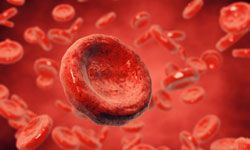Tafasitamab/Chemotherapy DLBCL Study Passes Event-Driven Interim Analysis for Futility
The phase III B-MIND study of the investigational humanized Fc-engineered monoclonal antibody, tafasitamab plus bendamustine versus rituximab plus bendamustine for treatment of adult patients with relapsed or refractory diffuse large B-cell lymphoma, has passed the pre-planned, event-driven interim analysis for futility, resulting in a recommendation to increase the number of study participants from 330 to 450, according to a press release from MorphoSys.

The phase III B-MIND study (NCT02763319) of the investigational humanized Fc-engineered monoclonal antibody, tafasitamab (MOR208) plus bendamustine versus rituximab (Rituxan) plus bendamustine for treatment of adult patients with relapsed or refractory (R/R) diffuse large B-cell lymphoma (DLBCL), has passed the pre-planned, event-driven interim analysis for futility, resulting in a recommendation to increase the number of study participants from 330 to 450, according to a press release from MorphoSys.
An independent data monitoring committee (IDMC) assessed the study data for the probability that it will yield positive results. This assessment included efficacy seen in the overall patient population and in a subgroup of patients with a low natural killer cell count, a newly defined biomarker that was added as a co-primary endpoint of the study earlier in the year.
The goal of the IDMC review, which led to the recommendation to increase enrollment in the study, is to increase the statistical relevance in a biomarker-positive subpopulation and in the overall patient population.
"We are very pleased with the IDMC recommendation and see it as an important step in the clinical development of tafasitamab. DLBCL is a difficult to treat disease and has a high unmet medical need, so new treatment options are highly needed,” Malte Peters, MD, chief development officer, MorphoSys, said in the press release.
The phase II/III tafasitamab study is a randomized, 2-arm, open-label, evaluated efficacy and safety with the primary end points of progression-free survival (NCT02763319). Several secondary end points were also evaluated, such as objective response rate, duration of response, overall survival, disease control rate, and time to progression.
Patients in the study were R/R to at least 1 prior systemic therapy and were not eligible for high-dose chemotherapy or autologous stem cell transplantation. However, patients could not be R/R to more than 3 prior systemic treatment and were required to have an Eastern Cooperative Oncology Group (ECOG) performance status of 0 to 2. At the time of screening, laboratory test for study candidates must have shown an absolute neutrophil count ≥1.5 × 109/L; total serum bilirubin ≤2.5 × upper limit of normal (ULN); platelet count ≥90 × 109/L; serum creatinine ≤2.0 x ULN; and alanine transaminase, aspartate aminotransferase and alkaline phosphate ≤3 × ULN or <5 × ULN.
As exclusion criteria, the investigators listed the presence of any other histological lymphoma, patients who had major surgery within 30 days of starting treatment on the study, prior history of malignancies and individuals who test positive for hepatitis B or C, HIV, systemic infections, and other related conditions.
Morphosys announced that the top-line results of the phase I/II study will be made available in the first quarter of 2022. The study will continue to enroll patients, per the recommendation of the IDMC, and according to the original trial inclusion and exclusion criteria.
Tafasitamab is also the leading agent in combination with lenalidomide (Revlimid) in the phase L-MIND study, which has led the developer to consider submitting a Biologics License Application (BLA) to the FDA by the close of the year. Previously, the FDA granted a Breakthrough Therapy Designation for tafasitamab plus lenalidomide, as a potential treatment for patients with R/R DLBCL.
“Independent of B-MIND, we are on track to complete our BLA submission to the US FDA for tafasitamab in combination with lenalidomide by the end of 2019 based on the previously reported encouraging results from theL-MIND and Re-MIND clinical studies,” Peters said in a statement.
Reference:
MorphoSys' tafasitamab B-MIND DLBCL study successfully passed futility analysis [press release]. Munich, Germany: MorphoSys; November 18, 2019. https://bit.ly/2QA9RPc. Accessed November 19, 2019.
Examining the Non-Hodgkin Lymphoma Treatment Paradigm
July 15th 2022In season 3, episode 6 of Targeted Talks, Yazan Samhouri, MD, discusses the exciting new agents for the treatment of non-Hodgkin lymphoma, the clinical trials that support their use, and hopes for the future of treatment.
Listen